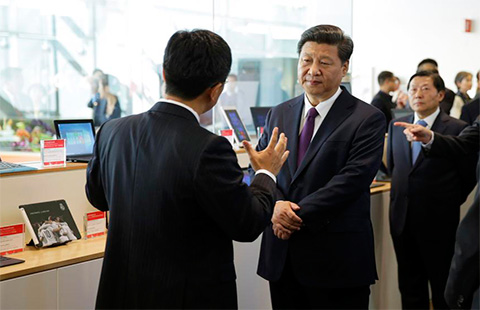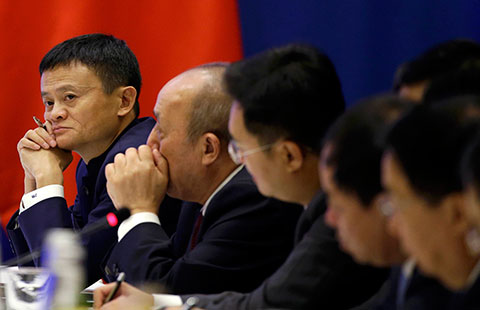The XPCC workers live in peace and harmony as neighbors with people of various ethnic groups in Xinjiang; they share mutual support and assistance. The Corps has provided various public services not only to its workers, but also to the local people, attracting people from all ethnic groups of Xinjiang and various other parts of the country to work, study, seek medical care, and start businesses in the XPCC, thus promoting ethnic unity, unity between the Corps and local governments, and integrative development of both XPCC and the local society, facilitating the formation of interwoven social development model for Xinjiang's ethnic groups and laying down the social foundation for these ethnic groups to communicate and integrate. During the process of creating the unique XPCC culture, the Corps makes a due contribution to enriching the local cultures of Xinjiang by promoting cultural exchanges among the different peoples and enhancing their identity with the Chinese culture that features integrated diversity.
The XPCC has played a unique role in maintaining stability and defending border area. Always upholding principles of being both soldiers and civilians, and combining productive labor with military duties and the army with the people, the Corps has paid equal attention to productive work and military training; the hundreds of thousands of XPCC workers from 58 border regimental farms have guarded a 2,000-km section of China's borderlines to ensure the security of China' s northwestern borders. In the face of severe and complex threats to social stability in Xinjiang, the various divisions, regiments, companies, enterprises and public institutions under the XPCC have established an emergency-response militia contingent. The XPCC has played a unique and irreplaceable role in maintaining social stability in Xinjiang, quashing violent terrorist activities and safeguarding the public.
It is the Chinese government's strategic plan to administer state affairs and ensure national stability and an important strategy to strengthen frontier governance to form, support and develop the XPCC; it is a major institutional innovation in maintaining stability in Xinjiang, safeguarding ethnic unity and national unification, and developing the border area; and it is an effective mechanism for the central government to support the localities, the more developed inland areas to support border areas, and the various ethnic groups to render mutual assistance. After decades of development, XPCC-built cities and regiment-built towns have gradually developed into the regional economic and cultural hubs, where all sorts of resources converge - population, capital, industry, talent, education and healthcare.
Upholding the national interests as its own interests and overall situation of Xinjiang its foremost concern, the XPCC has remained a key force in developing and building Xinjiang and bringing benefits to people of all its ethnic groups, as well as in safeguarding national unification and maintaining stability in Xinjiang. As such, it has always enjoyed support and help from the region's governments at all levels and the people of all the ethnic groups. In view of the new conditions and prioritizing the overall goal of lasting stability and peace in Xinjiang, the XPCC will give full play to its role in adjusting the social structure, promoting cultural exchange and facilitating inter-district coordination, further boost its strength, deepen XPCC-Xinjiang integrative development, and endeavor to make still greater contributions to the development, progress, harmony and stability of Xinjiang.

 Here's what's on the menu for the state dinner
Here's what's on the menu for the state dinner
 President Xi visits Microsoft campus in Seattle
President Xi visits Microsoft campus in Seattle Xi revisits Lincoln High School after 1993 bond
Xi revisits Lincoln High School after 1993 bond
 Chinese, US business leaders gather at roundtable meeting
Chinese, US business leaders gather at roundtable meeting Xi visits assembly line of plane manufacturer Boeing in US
Xi visits assembly line of plane manufacturer Boeing in US First Lady tours Fred Hutchson Cancer Research Center
First Lady tours Fred Hutchson Cancer Research Center
 Boeing to sell 300 planes to China
Boeing to sell 300 planes to China Sino-US ties need more understanding: Xi
Sino-US ties need more understanding: Xi














